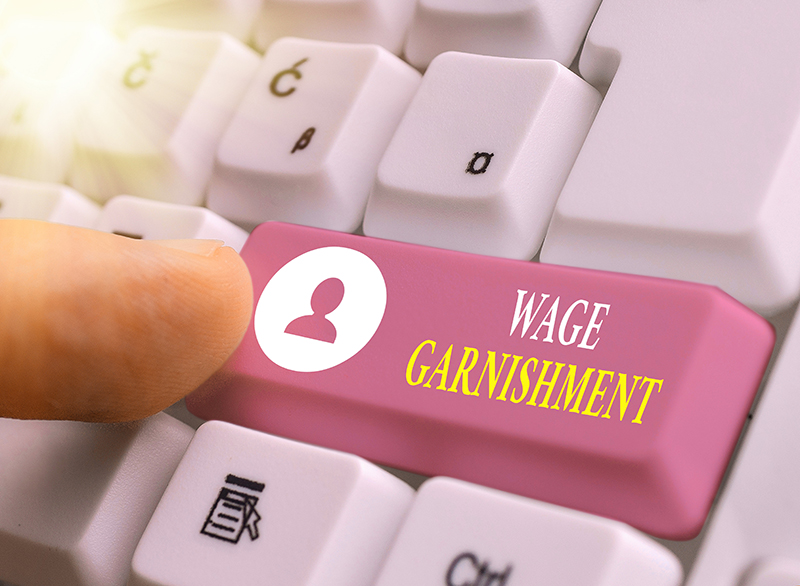Can I change my garnished paycheck for back taxes to a payment plan online?
June 25, 2020 by Jean Lee Scherkey, EA
You do not have to wait until September 1st to race to Platform Nine and Three-Quarters to become a renowned magician. With a few steps, you can make the IRS garnish order on your paycheck disappear! Unless there are extenuating circumstances, you will still owe the IRS the taxes that are due, but you can be in the driver’s seat regarding when and how payments are made. And if you are in dire straits, you may be able to reduce the amount you are required to pay each month and even possibly postpone making any payments until you are back on your feet.
As with most government agencies, the first word that comes to mind when considering the speed in which the IRS works is not Ferrari. The IRS usually does not go from “zero to sixty” by issuing a wage garnishment as soon as tax is assessed. The IRS works more like a 1960’s VW Microbus trying to crest a hilly road. They will contact the taxpayer a few times by mail and perhaps even by phone over many months before submitting a wage garnishment to a taxpayer’s employer. Once a wage garnishment is finally issued, the order will more than likely continue until the tax debt is paid in full or other arrangements are made to satisfy the debt.
Out of discouragement, fear, or a little bit of both, some taxpayers may be resolved to leave a wage garnishment in place and count the pay periods until the tax debt is paid in full. Keep in mind that it is not just your regular wages the IRS will garnish. Once a wage garnishment is issued, the IRS can fully garnish supplemental wages, such as bonuses and commissions. While this is undoubtedly an option, it is more than likely not in a taxpayer’s best interest. Though IRS garnishments are not includable on a taxpayer’s credit report (the IRS does not report liens, levies, or other taxpayer judgments to the three main credit bureaus), wage garnishments are a matter of public record. As such, a wage garnishment can impact a taxpayer’s ability to qualify or refinance a mortgage, obtain a low-interest car loan, or a new line of credit.
Here’s where the magic comes in. When you enter into a payment plan with the IRS, known as an Installment Agreement, the IRS will release an active wage garnish order. There are several ways a taxpayer may request an installment agreement. One way is to fill out and submit IRS Form 9465 Installment Agreement Request. A quicker way to request an installment agreement is to apply online at IRS.gov. There are two types of online installment agreements − a long-term payment plan and a short-term payment plan. To qualify for the long-term payment plan, the taxpayer must owe $50,000 or less in tax, penalties, and interest, and must be up to date in filing all individual income tax returns. With a long-term installment agreement, a taxpayer has up to six years to pay the amount due. To qualify for a short-term payment plan, the taxpayer must owe $100,000 or less and be able to pay the total balance in one hundred twenty days or less. Long-term payment plans have an initial set-up fee, which is lower when a taxpayer chooses to make their monthly payments via automatic withdrawal from their bank account. However, the fee can be waived if the taxpayer is considered low income.
Installment agreements have other taxpayer benefits that wage garnishments do not. With an installment agreement, the taxpayer can choose which day the monthly payment is made. A big plus to installment agreements is that they are not part of a taxpayer’s public record. Even though it is illegal for an employer to fire an employee for having a wage garnishment order, it cannot help but place doubt and strain on the employer/employee relationship. Customarily, when a taxpayer owes more than $25,000 to the IRS, a lien is placed on an asset the taxpayer owns, and more times than not, that asset is the taxpayer’s home. When a taxpayer enters into an installment agreement where the payments are directly debited from the taxpayer’s account, the IRS commonly withdraws the tax lien after a minimum of three consecutive direct debit payments upon request.
While an installment agreement can be applied for online, having an existing wage garnishment makes things a bit more complicated. The last thing a taxpayer wants is to have an installment payment automatically withdrawn from their checking account while the IRS continues to garnish each paycheck. This is where diligence and consistent communication with the IRS is vital. If the thought of contacting the IRS sends shivers down your spine, use your magic wand to call the tax experts at TaxAudit’s Tax Debt Relief Assistance. Our team of compassionate, licensed professionals is here to intercede on your behalf with the IRS. Because we understand that each taxpayer’s situation is different, we offer a complimentary, no-obligation phone consultation. Wage garnishments are scary, especially in these uncertain times. The good news is you are not alone. When you are ready, give us a call!





